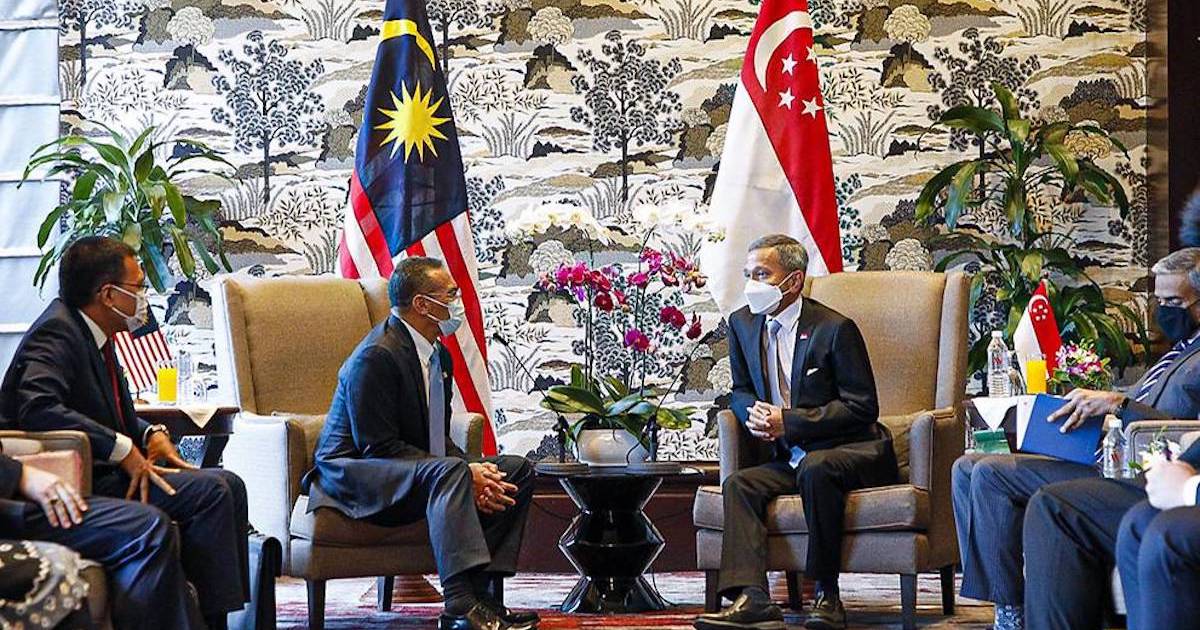While Singapore could recently celebrate reaching the top spot in Bloomberg’s Covid Resilience Ranking as the best and safest place in the world to be during the pandemic, the problems for the globally interconnected city-state are far from over as it depends not only on itself, but also on how well everybody else is doing.

However, the recent spike in locally transmitted cases has prompted caution from the government which reimposed some restrictions, particularly on outdoor dining and operation of gym facilities. Regardless, the situation in Singapore remains very good with around 20 to 30 locally transmitted cases per day.


In contrast, Malaysia is setting new records with over 6,000 cases recorded on Wednesday (May 19), with reports of lacking beds in local hospitals, particularly in intensive care units (ICUs) in Klang Valley.
While the city-state has links to virtually the entire world, it is most closely intertwined with neighbouring country Malaysia.
Approximately 400,000 people crossed the border between the two countries daily, commuting from Johor for work in Singapore before the pandemic. Since the crossings are still effectively closed, thousands of Malaysians are either stuck in Singapore and away from their families, or stuck in Malaysia and unable to return to employment in the city-state.
This has already posed significant challenges for Singaporean companies — for which Malaysians are the largest pool of workforce, particularly in lower-paid jobs (which often tend to be quite important nevertheless). We’re talking about qualified renovation workers, cleaning, cooking or retail staff.
As Singapore has largely reopened its economy, thanks to effective preventative measures which brought the local spread of the virus under control, the pressure on a return to cross-border normalcy grows, as the economy depends on hundreds of thousands of foreign workers.
Return to normalcy is impossible without vaccines
As long as distancing rules are in place, return to normal work is going to be difficult. The only way to defeat the disease is through mass vaccinations.

Sadly, the vaccination campaign in Malaysia is lagging badly behind Singapore. While the city-state — one of the leaders in Asia — has managed to fully vaccinate around 25 per cent of its population, for Malaysia, that figure is just three per cent.
The State of Johor is aiming to inoculate at least 100,000 Malaysians who hold jobs in Singapore by June but at current vaccination rates, that goal may not be achievable. After all, the two doses require an interval of at least three to four weeks.
As a result, Singaporean businesses may very well be hamstrung by the delays across the border for many months to come.
In the first quarter of 2021, Singapore registered a very modest positive GDP growth of just 0.2 per cent, although the Monetary Authority of Singapore is confident that it may post an expectations-beating result of over six per cent for the entire year.
This projection however, is based on the anticipation of global rebound beginning in the second quarter.
For Singapore, it means that its larger neighbour should follow suit, or else its problems may stifle Singapore’s ability to take full advantage of the improving global situation.
Let’s not forget that besides dependence on Malaysian workforce, commercial and leisure travel between the two countries was also very high — with the air route between Kuala Lumpur and Singapore being the busiest in the world in terms of number of air operations.
As long as Malaysia is unable to catch up, it’s going to have negative knock-on effects on Singapore as well.
Given how interconnected the city-state is and how dependent on interactions with the outside world, through trade and labour, its post-Covid revival is going to largely depend on how everybody else is doing — and the most important element in this process is Malaysia.
Featured Image Credit: Ministry of Foreign Affairs








